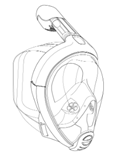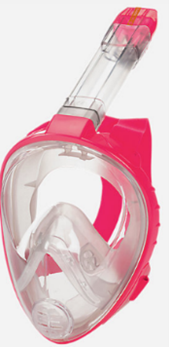PARASITISM – CLARIFICATIONS FROM THE COURT OF CASSATION ON THE CONCEPT OF “INDIVIDUALIZED ECONOMIC VALUE” THAT MUST BE PROVEN BY THE VICTIM
Legal watch
13 November 2024
Cass. Com., 26 June 2024, n° 23-13.535 : Maisons du Monde c./ Auchan ;
Cass. Com., 26 June 2024, n° 22-17.647 et 22-21.497 : Decathlon c./ Intersport
IMPACT: In two rulings delivered on the same day, the Court of Cassation reaffirmed that in parasitism cases, the claimant must demonstrate both the individualized economic value they invoke and the defendant’s intent to follow in their footsteps.
Furthermore, it clarified the contours of individualized economic value, emphasizing that “seeking cost savings to the detriment of a competitor is not inherently wrongful,” thereby increasing the evidentiary burden for the claimant.
1. Facts of the cases
In the case Maisons du Monde v. Auchan, the latter had marketed cups and bowls featuring “vintage” images designed by contracted companies. Maisons du Monde (MDM) sued Auchan for unfair competition and parasitism, claiming that these products reproduced a design similar to its Pub 50’s board, created in 2010 by its style research department. Following the rejection of its claims by the Rennes Court of Appeal—already on remand after cassation—a further appeal was filed..
In the case Decathlon v Intersport, Decathlon marketed the “Easybreath” snorkeling mask, protected by a community design, while Intersport sold a similar mask under the Tecnopro brand, supplied by the German company Phoenix Group.


EasyBreath – Decathlon
Tecnopro – Intersport
The Court of Cassation reviewed these cases to reaffirm the criteria for parasitism, ultimately upholding the ruling in the Decathlon case while rejecting the claims in the Maisons du Monde case..
The Court aimed to give these rulings broad visibility as they are published in the Bulletin and will be discussed in the Court of Cassation’s Annual Activity Report. This aligns with a broader judicial trend to better define the concept of parasitism, as indicated by the Paris Court of Appeal’s January 2024 publication on compensating parasitism-related damages.
2. Reaffirming the criteria for parasitism
In both rulings, the Court of Cassation reiterated several principles:
- the principle of free trade, stressing that “ideas are free to be used, and merely adopting and adapting a concept implemented by a competitor does not, in itself, constitute an act of parasitism”.1
- the traditional definition of parasitism which is “a form of unfairness, constitutive of fault under Article 1240 of the Civil Code, whereby an economic operator seeks to benefit unduly from another’s efforts, expertise, acquired reputation, or investments”2.
- the evidence burden for the claimant: “identifying the individualized economic value he is claiming” and “the willingness of a third party to placing himself in the wake of another ”3.
- the notion of individualized economic value, which “cannot be inferred solely from the product’s longevity and commercial success.”4.
The Court added a clarification in the Decathlon case, noting that “seeking cost savings at a competitor’s expense is not inherently wrongful but is part of free trade and competition, provided it respects fair commercial practices”. This clarification reinforces the claimant’s evidentiary burden, ruling out reliance solely on demonstrating cost savings resulting from the defendant’s adoption of an idea or concept.
3. The application of parasitism criteria by the Supreme Court to the cases
After reaffirming the principles of parasitism, the Court of Cassation undertook a highly fact-specific analysis of the cases to ensure proper application of the principles, offering various examples of evidence necessary to establish individualized economic value.
In Maisons du Monde v. Auchan, MDM argued that its Pub 50’s board represented a unique combination of visual elements evoking the 1950s, supported by promotional efforts.
However, the Court of Cassation dismissed the appeal, citing insufficient proof of an identified and individualized economic value based on several indicators it detailed at length :
- the absence of slavish copy by Auchan of the Pub 50’s board created by MDM, as the images used were “composed of various royalty-free photos available online.”
- The limited sales period of the Pub 50’s board, which was “never prominently featured as emblematic of the ‘vintage’ collection.”
- The reuse of a style that the plaintiff was neither uniquely exploiting nor characteristic of its brand.
- The plaintiff’s lack of intellectual property rights over the design elements in question, surprising given parasitism’s distinct legal basis.
- The absence of any adaptation of the Pub 50’s board to other products.
- The mundane combination of preexisting images freely accessible online, which was never promoted as emblematic of the brand’s universe.
The Supreme Court thus provides numerous examples of how to characterize an individualized economic value which, in their absence, are indicators that should lead to the exclusion of the existence of parasitism.
In Decathlon v. Intersport, the Court rejected Decathlon’s claims of design infringement, noting that the mask’s features were dictated by technical requirements, and its claims of unfair competition due to lack of consumer confusion.
However, parasitism allowed Decathlon to prevail, with the Court identifying several factors proving individualized economic value:
- The significant renown of the Easybreath mask, supported by over €3 million in advertising investments and €73 million in sales between 2014 and 2018.
- Three years of design and development work costing €350,000.
- The innovative nature of Decathlon’s approach, with no evidence that “equivalent products existed in the French market when the Easybreath mask was launched.”
The Court also considered the defendant’s perspective, highlighting that Intersport and its economic partner:
- “Provided no evidence of product development efforts or associated costs.”
- Launched their mask “during a period when Decathlon was still airing advertising campaigns.”
The Court further noted that the intent to follow in a competitor’s footsteps was evident from “the striking resemblance of the Decathlon mask,” the “link between the two masks due to their overall appearance,” and the timing of Intersport’s product launch coinciding with Decathlon’s advertising efforts.
As a result, Intersport and Phoenix were jointly ordered to pay Decathlon €100,000 in damages. However, no injunction was issued given the Easybreath mask’s three-year market presence without competing versions being introduced.
- 1re Civ., 22 June 2017, pourvoi n° 14-20.310 ↩︎
- Com., 16 February 2022, pourvoi n° 20-13.542 ; Com., 10 July 2018, pourvoi n° 16-23.694 ; Com., 27 June 1995, pourvoi n° 93-18.601 ↩︎
- Com., 26 June 2024, pourvoi n° 23-13.535 ; Com., 20 September 2016, pourvoi n° 14-25.1316 ; Com., 3 July 2001, pourvoi n° 98-23.236, 99-10.406 ↩︎
- Com., 5 July 2016, pourvoi n° 14-10.108 ↩︎

